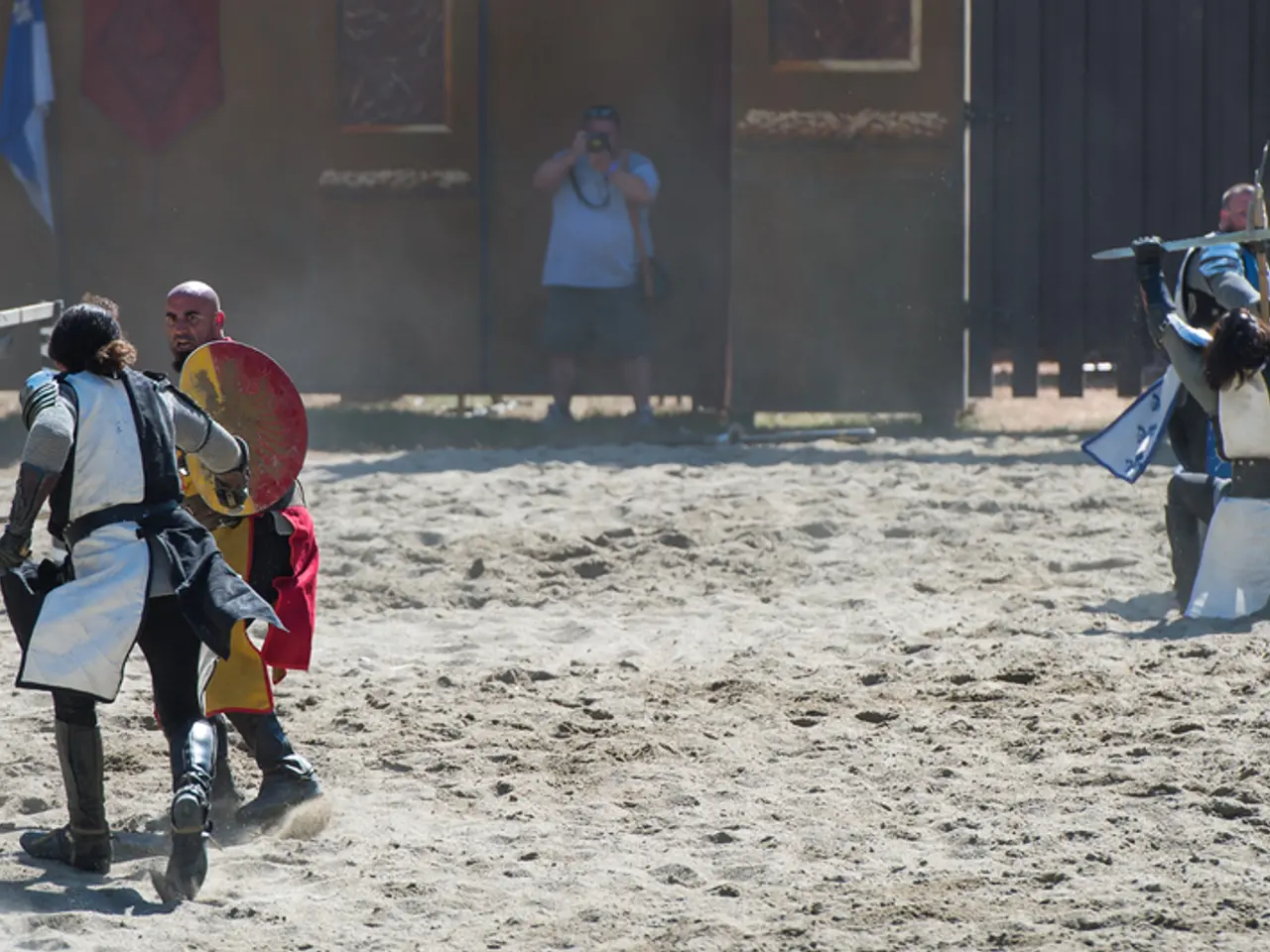Bundestag Election Recount Carried on by BSW
In the political landscape of Germany, the Sahra Wagenknecht Alliance (BSW) is making waves as a new and ambitious force. Despite narrowly missing the 5% threshold required for representation in the Bundestag in the 2025 federal elections, the BSW has shown promising signs of growth and determination.
In the elections, the BSW received 4.981% of the second votes, falling just short of the critical threshold. This result, while disappointing, is a testament to the party's rapid rise in popularity, as summer 2024 polls indicated over 10% support and as high as 7.9% just before the election.
The BSW is currently participating in governing coalitions at the state level in Thuringia and Brandenburg. However, the party was excluded from the major public TV election debate, leading Sahra Wagenknecht to file a constitutional complaint. The courts ruled that the BSW lacked comparable significance to other invited parties at that time.
As the German federal politics grapple with contentious defense spending and coalition building challenges in a volatile security environment, the BSW's stance on such issues remains unclear. The Left, a rival party, opposes defense spending increases on principle, but the specifics of the BSW's position are not detailed in the available sources.
Following its election defeat, the BSW held a meeting in Berlin over the weekend to discuss its perspective moving forward. Sahra Wagenknecht, the party's leader, criticised the "greatest armament in the history of the Federal Republic" and the lack of opposition in the Bundestag. The BSW has also opposed the approval of "unlimited armament credits" in the Bundesrat, specifically citing the approval by governing Left parties in Bremen and Mecklenburg-Western Pomerania.
The BSW aims to continue after its federal election defeat and has set its sights on surpassing the 5% threshold in future elections to gain Bundestag representation and national influence. The party is planning to found a youth wing in July and is working on building and expanding regional and local structures. It has announced that its member number should be in the five-digit range by the end of the year, with a long-term goal of entering the Bundestag with a strong faction by 2029 at the latest.
However, the BSW's growth is not without challenges. There is resistance to the member selection process in the state associations, with the federal board still retaining a say in member selection for the BSW. A conflict between the party leadership around Wagenknecht and the Thuringian state association exists within the BSW.
In the upcoming elections in Saxony-Anhalt, Berlin, and Mecklenburg-Western Pomerania in 2026, the BSW will have opportunities to demonstrate its electoral strength and potentially secure its place in the Bundestag. Wagenknecht has also been vocal in her opposition to the idea of a firewall against the AfD, calling it an "undemocratic stupidity" that ultimately helps the far-right party.
The BSW positions itself as "the only peace party in Germany" and advocates for a "performance-based society" and a reliable social state. As the party continues to grow and evolve, it will be interesting to see how it navigates the complexities of German politics and works towards its goal of entering the Bundestag with a strong faction.
- In the aftermath of the 2025 federal elections, the Sahra Wagenknecht Alliance (BSW) is planning to establish a youth wing in July, aiming for a five-digit membership count by the end of the year.
- Despite suffering a narrow defeat in the 2025 elections, the BSW is eying future opportunities for growth, specifically in the upcoming elections in Saxony-Anhalt, Berlin, and Mecklenburg-Western Pomerania in 2026.
- The BSW's stance on defense spending remains ambiguous, mirroring the broader challenges in German federal politics as they navigate contentious defense spending and coalition building in a volatile security environment.
- The BSW has been critical of unlimited armament credits and has opposed their approval in the Bundesrat, citing specific instances in Bremen and Mecklenburg-Western Pomerania where governing Left parties have historically agreed to such proposals.
- The BSW, often referred to as "the only peace party in Germany," advocates for a performance-based society and a reliable social state, but its growth has been met with challenges such as resistance within the member selection process and internal conflicts between party leadership in different state associations.




